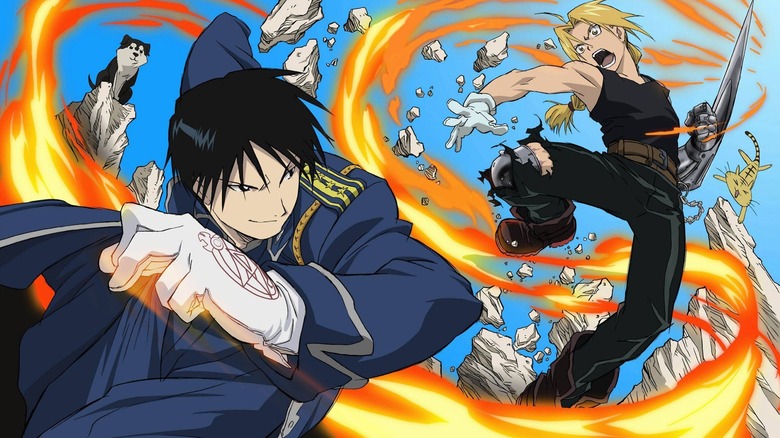
Square Enix
The first "Fullmetal Alchemist" anime is a victim of its own success. Premiering in 2003, it bolstered the already popular manga about two alchemist brothers (Edward and Alphonse Elric) looking for the Philosopher's Stone. The series was so popular that Studio Bones made a second anime out of the manga — "Fullmetal Alchemist: Brotherhood" — in 2009.
"Fullmetal Alchemist: Brotherhood" is widely considered one of the best anime of all time, and it surpassed the first attempt. Unlike the 2003 anime, which had to improvise because of unfinished source material, "Brotherhood" faithfully told Arakawa's story from beginning to end. (Faithfulness in-and-of-itself isn't necessarily a virtue, but it is when the story you're adapting is already the superior version!) Nowadays, "Brotherhood" is the definitive "Fullmetal" anime while the 2003 series has been forgotten. When people talk about "Fullmetal Alchemist," they're usually referring to "Brotherhood."
The 2003 "Fullmetal Alchemist" is still good, though. It's downright impressive how the show completed its narrative with only a few of the puzzle pieces — because it knew to re-order them. Even the series' first half, which has the major beats of the manga, tells them out of order. One of the story's most infamous chapters, "The Alchemist's Suffering," got stretched into two episodes and was all the more painful for it.
Then there's episode 13, "Fullmetal vs Flame," where our titular hero faces off with his superior officer, Colonel Roy Mustang/The Flame Alchemist. For my money, it's one of the 2003 "Fullmetal Alchemist" anime's best episodes thanks to its foremost mixing of comedy and dramatic intrigue.
"Fullmetal vs Flame" mostly draws from a bonus manga chapter, "The Military Festival." This chapter is canon, but not part of the serialized narrative (it's not even included in the recent hardcover editions of "Fullmetal Alchemist"). The anime, though, successfully weaves the events into its broader story.
Fullmetal vs Flame pits Edward Elric against Roy Mustang
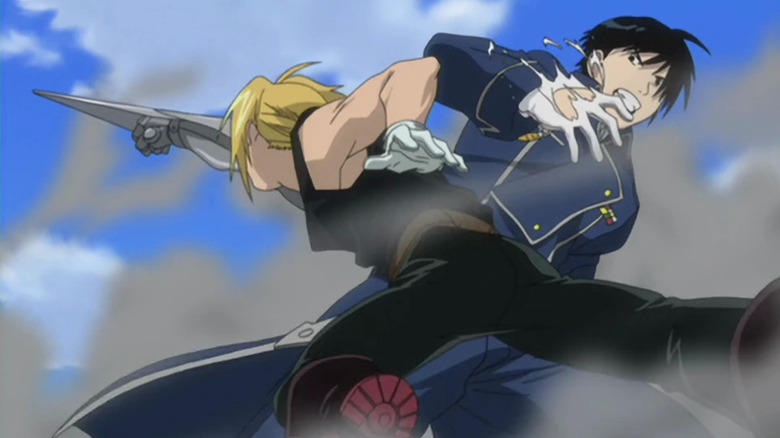
Square Enix
"The Military Festival" begins with the soldiers of the Amestris army debating who would win if Ed and Mustang ever fought. They're like anime fans arguing over which of their favorite characters are the strongest, and they soon get an answer.
To satisfy the curiosity among the ranks, Ed and Mustang are ordered to put on a public match for the men. The opponents' mutual friend Lt. Colonel Maes Hughes serves as announcer. Ed spends most of the fight running away from Mustang's explosive, finger-snapping Flame Alchemy, while Roy — effortlessly winning — drops some battlefield wisdom. ("An angry soldier fights blind," he warns the choleric Ed.)
Ed briefly gets an upper hand when he creates a decoy and slices Mustang's "ignition cloth" right hand glove — only for Mustang to reveal his left glove has a Flame Alchemy transmutation circle too. Victory: Mustang. A comically-injured Ed is ultimately carried away in a stretcher by Al, but Mustang is the real loser because he has to clean up the destroyed battlefield. The chapter ends with Hughes back in HQ, sipping tea, and dropping one last bit of wisdom: "A soldier should know when to retreat."
"Fullmetal vs Flame" adapts the battle faithfully, both the action and the farce of it. Both this chapter and episode use a "Gilligan cut" of Mustang asserting there's no way Führer Bradley will allow this fight — then an instant transition to him cheerily approving it.
When Hughes introduces Roy and then Ed to the crowd, they both get booed — Mustang because other soldiers resent him for quickly climbing the ranks (and stealing many of their girlfriends along the way), Ed because the soldiers have no respect for a short teenager, even one who is an alchemy prodigy. When Ed is running away from Mustang's fire bombs, the anime scores the scene not with a dramatic battle tune, but Benny Hill-esque slapstick music.
To fill out the runtime, "Fullmetal vs Flame" throws in two other bonus comedy chapters. The episode's B-plot, about Sergeant Fuery trying to get a stray dog a home, comes from chapter "Dog of the Military," the origin story of Lieutenant Riza Hawkeye's dog Black Hayate (Japanese for "Hurricane"). That results in one of the episode's most famous (and funniest) scenes, where the cold Mustang swoops up Hayate and exuberantly declares "I love dogs!"
That's not Mustang's only silly moment in the episode. He also declares that, once he's Führer of Amestris, he'll mandate that all female officers wear "tiny miniskirts!" This gets him an eye-roll from Hawkeye and the undying loyalty of Lieutenant Havoc.
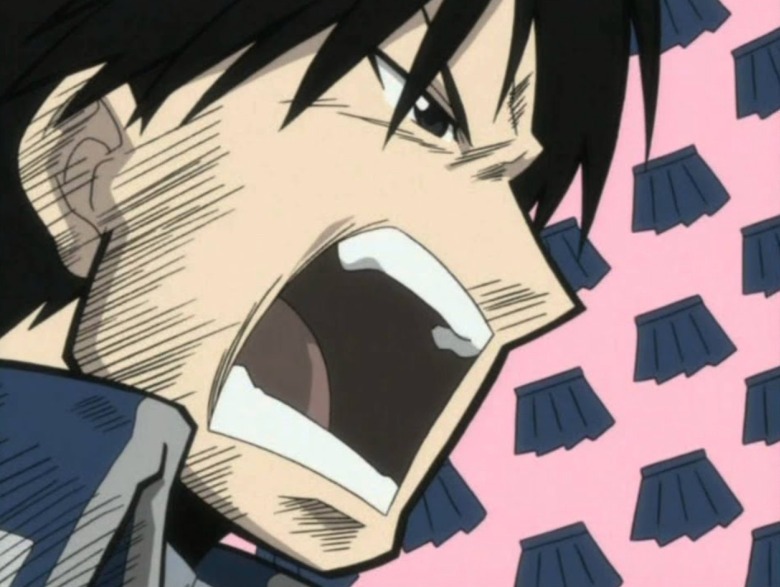
This is adapted from a non-canonical four-panel chapter ("omake"), "The Ambitious Alchemist." The joke is that Mustang's hallowed goal in reforming the country is changing the military dress code to favor the lecherous, and this is the lofty ideal that makes his team so loyal to him.

Yes, "Fullmetal vs Flame" hews on the funnier side, but it's not just a gag episode. The series uses the episode to bridge story arcs and further Ed and Roy's characterizations.
How 2003's Fullmetal Alchemist changes Edward Elric and Roy Mustang
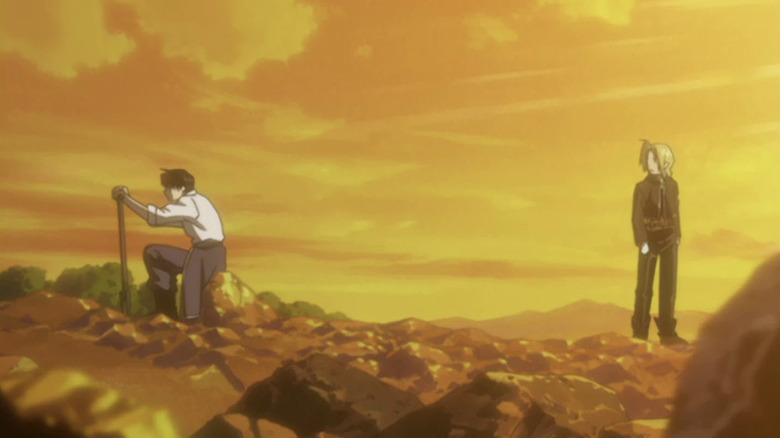
Square Enix
In every version of "Fullmetal Alchemist," Mustang discovers how Ed and Al broke their science's ultimate taboo (human transmutation) by trying to bring their mother Trisha back from death. Instead of arresting them, he keeps their secrets and sponsors Ed's entrance into the military as a State Alchemist. It's not the warmest relationship, but Roy looks out for the brothers and guides them like a father.
In the 2003 anime, this is subtly different and Mustang is a more ambiguous character at first (he is ultimately a hero, but an extremely flawed one). In this series, Ed and Al are using his patronage because they have no other choice and Ed especially is skeptical of Mustang. In turn, Mustang is more openly ambitious and self-interested. He recruits Edward not only to help the brothers, but to also further his own career by bringing a new asset into the fold. The relationship is less Mustang offering a helping hand and more a quid-pro-quo. Likewise, Mustang keeping the secret that the Elrics broke the law now feels more like blackmail; he knows he'd never rat them out, but they don't, so that results in a more antagonistic relationship. Ed and Roy will rib each other and share mutual frustration in the manga and "Brotherhood," but here, Ed actively distrusts and resents Roy.
That's why them fighting each other feels so natural. Notably, in "Fullmetal vs Flame," it's not gossip that sparks the battle, Ed gets the idea to challenge Mustang himself. Both set-ups fit Ed's personality — he's impish and defensive when challenged — but in this episode, Ed isn't fighting just for his own honor.
The Elrics are looking for a deserter alchemist named Dr. Tim Marcoh, who they think can lead them to the Philosopher's Stone. Ed suspects Mustang knows something, so he bets that if he can defeat him, the colonel will give him the information. (In the manga and "Brotherhood," the Elrics run into Marcoh by coincidence, and the 2003 anime building up the encounter is a welcomed narrative tightening.)
Unlike the manga, the fight ends in a draw — because as Roy is about to beat Ed, he's hindered by a PTSD attack. He fought in the "Ishvalan Rebellion," when the Amestris army launched a genocidal campaign against the anti-alchemy Ishvalans. Seeing Ed on his knees, Roy is reminded of when he killed a frightened Ishvalan teenager kneeling before him. As Ed and Roy clean up the mess they made, Roy passes along the information Ed was seeking. Ed can sense that something disturbed Roy during their fight, but he doesn't press.
Fullmetal Alchemist (2003) made changes for a richer story
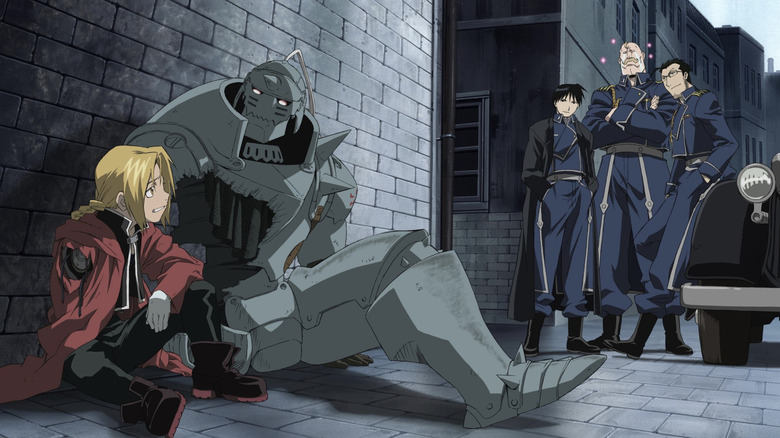
Square Enix
Another tweak to characterization in the 2003 "Fullmetal Alchemist" is the Elrics' immaturity. They are just kids but the anime gives greater weight to that. Ed's coming of age arc is realizing how his actions have consequences, and his initial way of seeing the world (where sacrifice is always rewarded, and all that matters are him and his brother) was too simple.
"Fullmetal vs Flame" is where Mustang's more noble side finally seeps in. While he recruited Ed to the military and is using him, he also understands that Ed doesn't totally grasp what being in the army means. (What teenager does?) He's trying to shield Ed from those realities as much as he can.
Roy can only do so much, though. "Fullmetal vs Flame" is the first appearance of the 2003 "Fullmetal Alchemist" anime's most infamous original villain: the homunculus Sloth, the reincarnation of Trisha Elric who her sons made in their human transmutation. Sloth is disguised as military officer "Juliet Douglas," and the episode telegraphs that there's something off about her when Ed notices her — there's a dramatic close-up of her face, then a reverse shot of Ed looking at her, and an intense music cue.
The truth about Miss Douglas doesn't come until later, when Ed has to confront his original sin, but from the beginning the 2003 "Fullmetal Alchemist" was setting up its original ending. That's why, even if the series stands in the shadow of "Fullmetal Alchemist: Brotherhood," it still holds up.


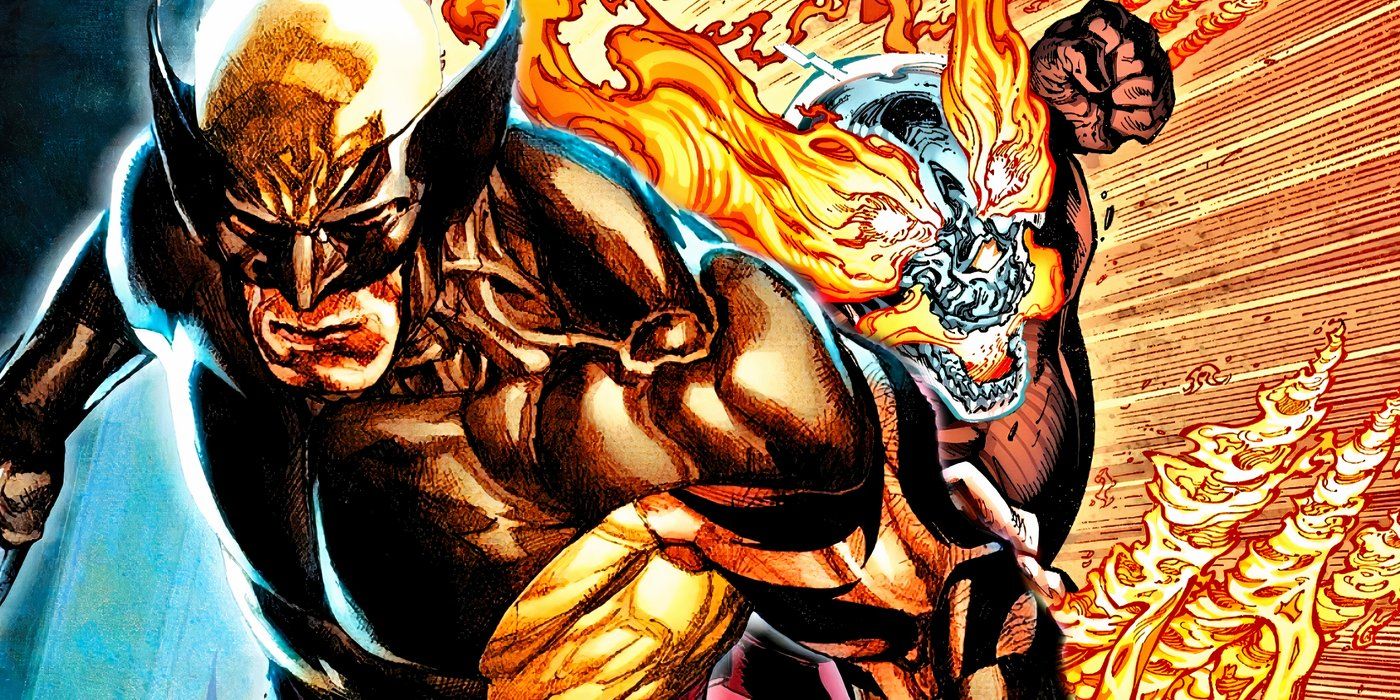






 English (US) ·
English (US) ·